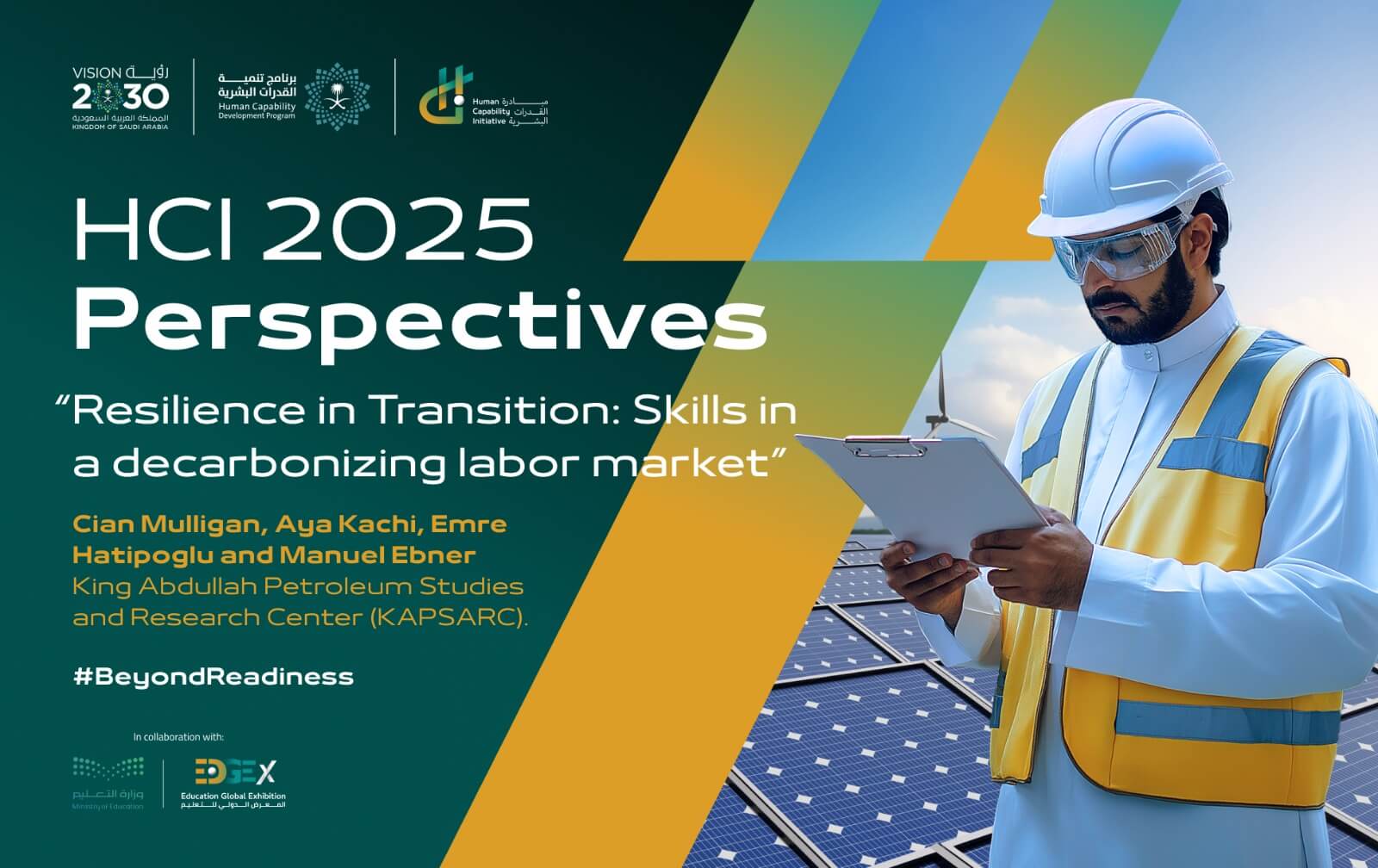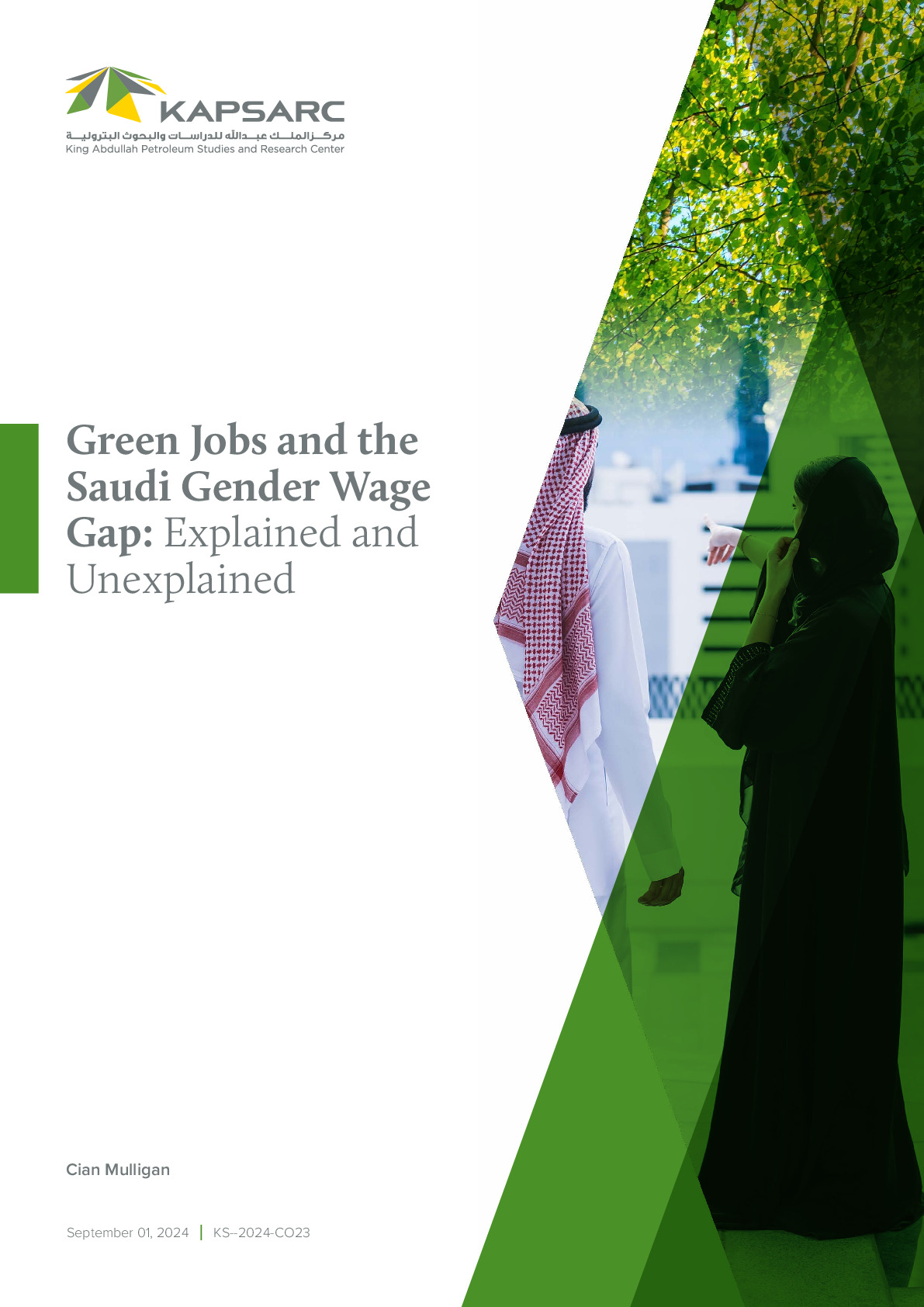The future of work is evolving rapidly. While green jobs are often linked to solar panels or wind farms, climate policies affect a much broader range of occupations, including engineers and accountants. Many have unknowingly worked in green jobs for years.
Job resilience in a low-carbon economy is typically assessed by sectoral emissions, but this overlooks the role of occupations and skill adaptability. Comparing Saudi Arabia and the UK using a novel index, we find both have similar shares of workers in high-emission sectors and large engineering workforces—key for green transitions.
To better measure job resilience, we use the Transition Risk Index (TRI), which combines sectoral carbon exposure, occupational adaptability, and labor market frictions. Between 2019 and 2022, Saudi Arabia’s TRI improved significantly. With the right policies—shifting focus from sectors to skills and expanding reskilling programs—labor markets can adapt rapidly to future transitions.




